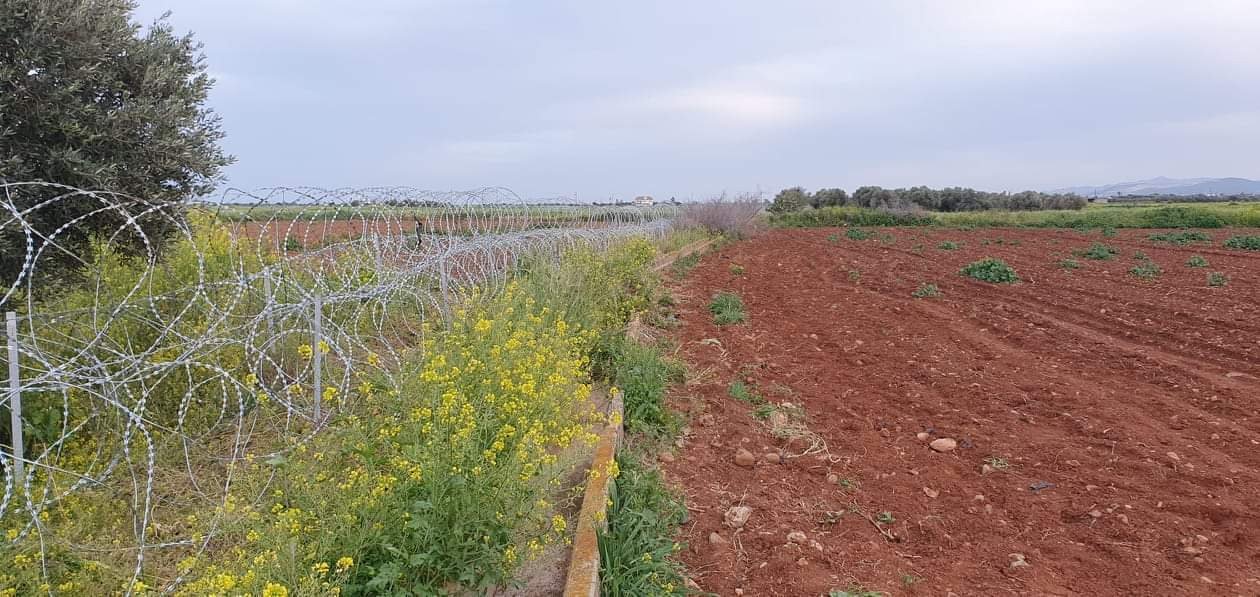After many months of difficult negotiations, the EU has recognised the instrumentalisation or ‘weaponisation’ of migration by Turkey through the Green Line, the interior ministry said on Sunday.
The ministry cited the development as “a maximum diplomatic success” the recognition of the instrumentalisation of migration by Turkey through the Green Line, “which now offers new possibilities to deal with illegal immigration,” the ministry said.
It said that more specifically, in the text of a compromise proposal of the Czech Presidency of the EU Council EU to address situations of instrumentalisation in the field of asylum and migration, the Cypriot interior ministry succeeded in introducing a special reference to the Green Line.
It states: “Although the Green Line is not an external border, it follows that the situation in which a third country or a non-state body encourages or facilitates the movement of third-country nationals to cross the line should be considered as instrumentalisation.”
“The summary of this reference in an official EU regulation is also Europe’s first official admission for the instrumentalisation of migration by Turkey through the Green Line and now clearly provides the opportunity to the Republic of Cyprus to face the hybrid threat of Turkey and to stop the daily illegal crossings of irregular migrants channeled through the occupied territories by adopting all those means and measures that are applied at the external borders of the European Union, without the Green Line being considered a border,” the ministry added.
Calling it an extremely important development, the ministry said the development comes at a time when Turkey is intensifying its threats daily, mainly against Cyprus and Greece.
“Now the instrumentalisation of migration through the Green Line is transformed from a Cypriot issue to a European one and as such is expected to be addressed from now on,” the ministry concluded.
Previously the fact that the Green Line could not be considered a ‘hard border’ due to the political situation in Cyprus, which joined the EU as a whole but with the acquis suspended for the north of the island, meant the government was left to deal with the migrant flow on its own.
Recognising the Green Line as a ‘border but not a border’, means Cyprus will now have more tools to deal with the crossing of irregular migrants from the north.
Instrumentalisation is defined as state-sponsored mass migration being used as a tool to destabilise a specific target country. The instrumentalisation of migration occurs when non-EU countries instigate migratory flows towards the external borders of the European Union to unsettle the Union or a member state, according to the European Journal of International Law.
Crossings of the Green Line being classed as instrumentalisation mean more cooperation and solidarity can be expected between member states, and EU institutions and agencies must be strengthened so that crises are managed jointly, including swift relocation procedures proportional to the severity of the crisis.
Cyprus has per capita been receiving the highest number of irregular migrants in the past few years, 95 per cent of whom cross the 180km long buffer zone.
Ruling Disy on Sunday welcomed the move saying that it clearly states that the Green Line would not be considered a border it means that in a situation where a non-EU country “encourages or facilitates the movement of third-country nationals” to cross in this case, the island’s buffer zone, it can be classed as instrumentalisation.
“Now with this first official admission by Europe for the instrumentalisation of immigration by Turkey, our country can be more ready to deal with irregular immigration, always with due respect and observance of our international obligations and international law,” said Disy. “This is a great success.”







Click here to change your cookie preferences